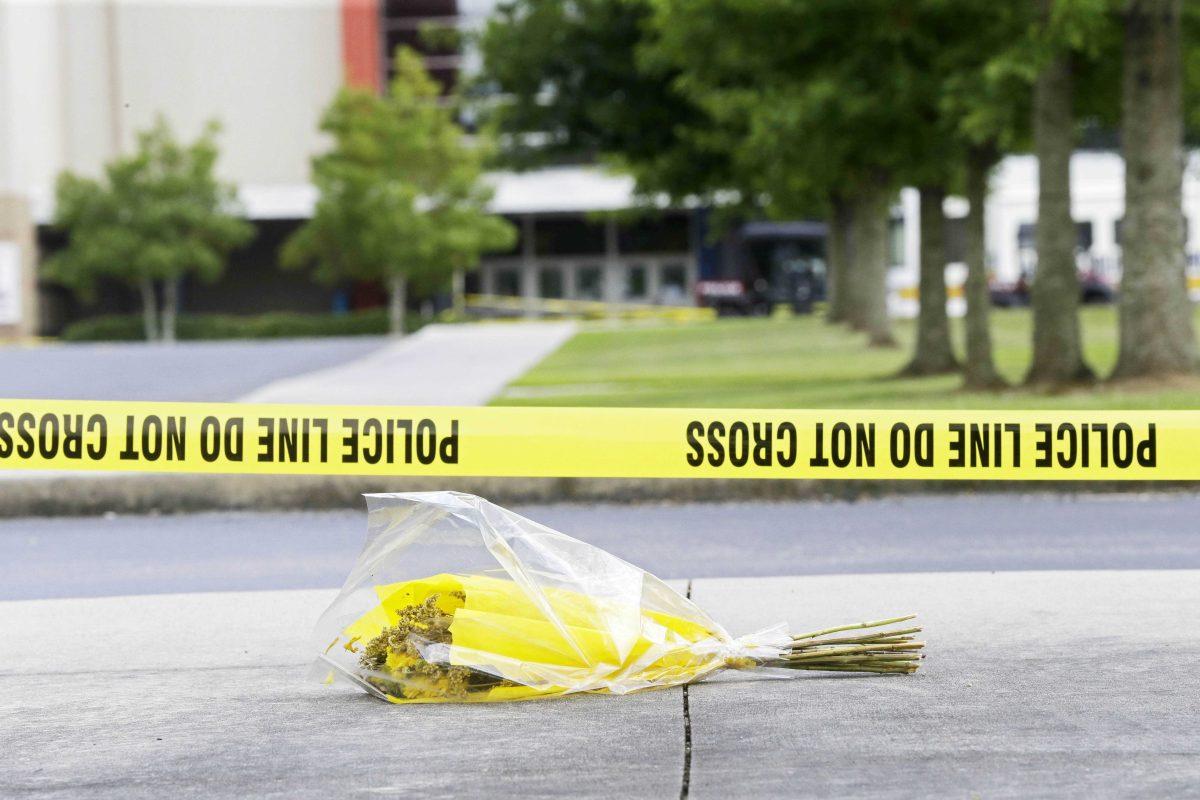April 20, 1999: 13 murdered in Columbine, Colorado; April 16, 2007: 32 murdered at Virginia Tech; December 14, 2012: 26 murdered in Newtown, Connecticut; July 23, 2015: two murdered and nine wounded in Lafayette, Louisiana.
These mass shootings are the results of a crumbling mental health care system and lack of gun control in the U.S.
This is the great American tragedy.
Last week in Lafayette, John Houser, 59, opened fire in a movie theater killing two women, injuring nine others and subsequently killing himself upon the realization he could not escape without arrest.
According to USA Today, Houser’s family claimed in 2008 he was in a “volatile mental state,” forced into involuntary hospitalization for a time and served restraining orders preventing him from going near family members.
In 1999, Eric Harris and Dylan Klebold walked into Columbine High School and murdered their classmates and a faculty member. They were given the weapons by friends who acquired them at a gun show. Thirty-four states do not require background checks at gun shows, which means both criminal and mental health records are ignored during these purchases.
On CBS’s “Face the Nation,” Gov. Bobby Jindal claimed Houser would not have been able to buy his weapon in Louisiana because his name would have shown up in a background check. However, his claim ignores the fact that private gun sellers (gun shows or secondary sales) do not have to perform background checks. So Houser could have bought his weapon from a private gun seller in Louisiana.
In states that require universal background checks, such as California, secondary or gun show sales must go through a federally licensed seller in order to perform a background check on the buyer. Louisiana does not require universal background checks.
Even in states that do look at mental health records, the National Instant Criminal Background Check System only looks at whether a legal authority has found that a person is a danger to himself or others, lacks the mental capacity to manage his own affairs or is found insane or incompetent by a court. These standards are contingent on legal authorities forcing themselves into the mental health care of citizens.
According to the National Alliance on Mental Health, one in five adults suffers from a mental illness, and nearly 60 percent of adults with mental illness do not receive professional help. Therefore, 60 percent of adults with mental illnesses would not show up in the NICS used by licensed gun dealers.
While all states should require universal background checks on gun purchases, federal and state law must go even further. Every gun purchase must be met with an evaluation by a mental health professional.
Banning guns in the U.S. is a farce of a reality. It cannot and will not happen with current political realities. And banning assault rifles will not stop mass shootings either.
Seung-Hui Cho murdered 32 people at Virginia Tech with two semi-automatic pistols. He was able to purchase his firearms despite a history with mental illness, (a history that included a court order, which should have put Cho on a watch list but did not).
But creating stricter bans and installing a psychological evaluation system will not solve the underlying problem at the heart of most mass shootings. In Newtown, Connecticut, 20-year-old Adam Lanza stole his mother’s firearm and murdered 20 children and 6 adult faculty members at Sandy Hook Elementary School.
Years prior to the massacre, Yale University’s Child Study Center recommended to Lanza’s mother that he take medication and receive further professional help for his mental health issues. Lanza’s mother ignored these recommendations, and he went untreated, later murdering his mother and 26 others.
The Sandy Hook massacre did not involve a gun purchase gone wrong, but it revolved around a mental health system failure paired with poor parenting. After an organization offers a recommendation that a child receives professional mental help, that organization or legal authorities must follow up on whether or not such help is occurring. In the case that the parent ignores serious recommendations that his or her child receive mental help, child protective services should enter the picture.
The path to curbing and eventually ending mass shootings in America does not have a single solution but a series of necessary reforms within the firearm community and the mental health system and negative stigma around mental health in this country.
Unless citizens and lawmakers push for comprehensive reforms, mass shootings will continue to be tragic but inevitable, and the great American tragedy will just steepen in unnecessary casualties.
Justin DiCharia is a 21-year-old mass communication senior from Slidell, Louisiana. You can reach him on Twitter @JDiCharia.
Gun control, crumbling health system failing the U.S.
July 27, 2015
A bouquet of flowers lies net crime scene tape in the parking lot outside The Grand 16 movie theater in Lafayette, La., Sunday, July 26, 2015, Sunday, July 26, 2015, in Lafayette, La. John Russell Houser stood up about 20 minutes into Thursday night’s showing of “Trainwreck” and fired on the audience with a semi-automatic handgun. (AP Photo/Gerald Herbert)
More to Discover








